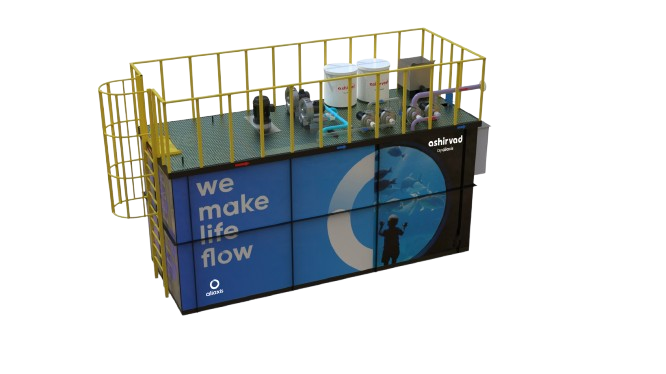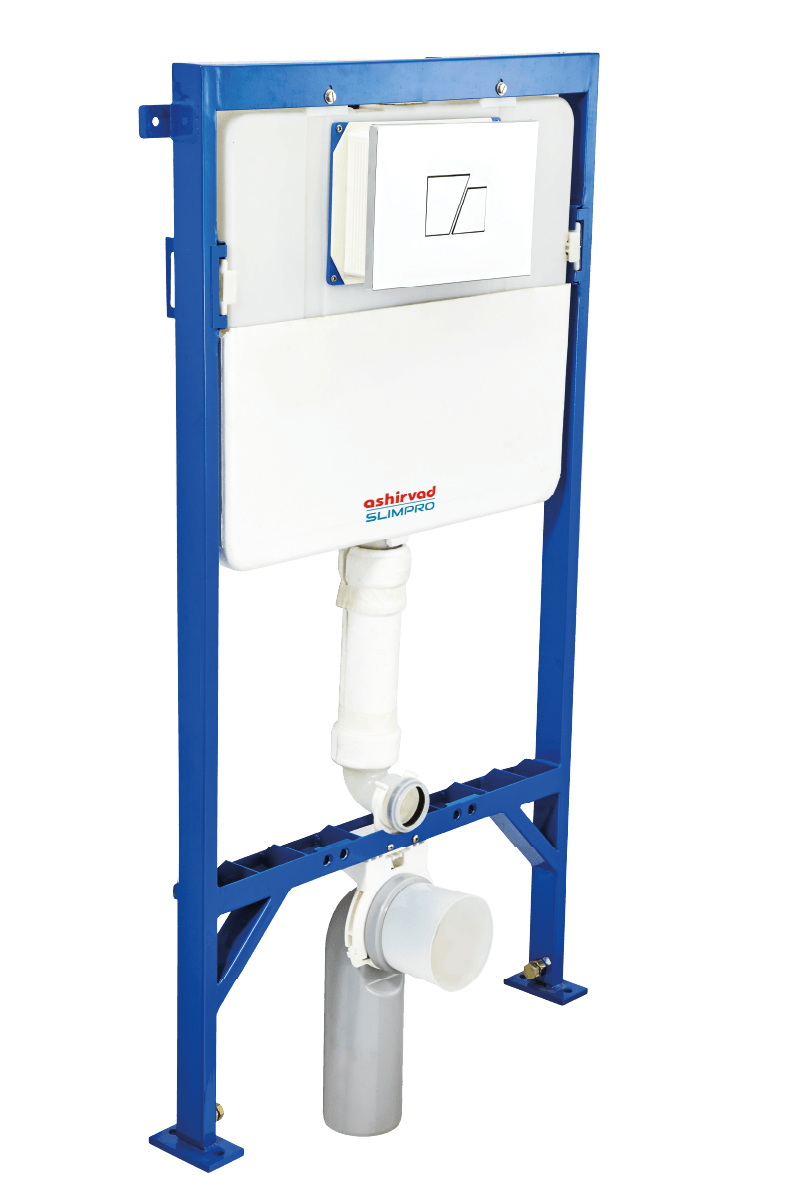1. Purpose
The Corporate Social Responsibility Policy (“CSR Policy”) of Ashirvad Pipes Private Limited
(“Company”) aims to contribute towards sustainable development of the society and
environment to make planet a better place for future generations. The philosophy of CSR
is imbibed in our business activities and social initiatives taken in the area of Water
Conservation, Skill Development and Education, Health, Sanitation, Poverty Alleviation,
Sustainability, Ecological Conservation etc.
The activities enlisted in this CSR Policy shall be carried out by the Company either
individually or in association with eligible Implementing Agencies registered with the Ministry
of Corporate Affairs.
2. Effective Date
This CSR Policy shall replace the previous CSR policy implemented in financial year 2021-
2022 and has been approved at the board meeting of 20 June 2024 and hence is effective
as from 20th June 2024.
3. Definitions
- “Act” means the Companies Act, 2013 as may be amended from time to time.
- “Administrative Expenses” means the expenses incurred by the Company in the
general management and administration of CSR functions in the Company and as
defined in the CSR Rules.
- “Board of Directors” or “Board” means the collective body of the directors of the
Company.
- “Company” means “Ashirvad Pipes Private Limited”.
- “CSR Committee” means Corporate Social Responsibility Committee constituted by
the Board of Directors of the Company.
- “CSR Policy” means this CSR Policy of “Ashirvad Pipes Private Limited”
- “CSR Rules” means the Companies (Corporate Social Responsibility Policy) Rules,
2014 as amended from time to time.
- “Implementing Agency” means any entity eligible as per Rule 4(1) of the CSR Rules
and registered with Ministry of Corporate Affairs for undertaking CSR projects, which
is engaged by the Company to implement various projects in pursuance of CSR
Policy and which, in addition, shall be non-profit organizations, registered charities
or non-government organization for activities intended for the public good and shall
remain independent from political parties and Government entities/ officials and from
confessional organizations (a group of people with similar religious beliefs) and it
will not confine services to certain groups or participate in conversion during or as
part of the charity activities.
- “Ongoing Project” refers to a multi-year project stretching over more than one
financial year, not exceeding three years excluding the year of commencement and
includes projects that were not initially approved as multi-years projects, but whose
duration has been extended beyond one year by the Board based on reasonable
justification and as defined under the CSR Rules.
- “Surplus” refers to income generated from the spend on CSR activities such as
interest earned by the Implementing Agency on CSR funds, revenue received from
CSR projects and other similar sources.
4. Functions of CSR Committee
The approval and governance of this CSR Policy shall be as defined herein:
4.1 Constitution of CSR Committee:
The CSR Committee is constituted by the Board of Directors of the Company and shall
comprise of at least 2 (Two) Directors of the Company. Other people may attend meetings
of the Committee as invitees. The Quorum for the CSR Committee meetings shall be 2
directors appointed as members of the CSR Committee.
Roles and Responsibilities of the CSR Committee:
The responsibilities of the CSR Committee of the Board shall notably include:
- Formulate and recommend to the Board the CSR Policy.
- Recommend the amount of expenditure to be incurred on CSR activities.
- Monitor the CSR Policy of the Company from time to time.
- Formulate and recommend to the Board an annual action plan in pursuance of its
CSR Policy, which shall include the items as mentioned in rule 5(2) of the
Companies (CSR Policy) Rules, 2014.
- Any other responsibilities that the Board may entrust the CSR Committee with.
4.2 Responsibility of the Board of a CSR eligible entity:
CSR is a Board driven process and a function of compliance. In this regard, the responsibilities of the Board of a CSR eligible entity include, but are not limited to:
- Approve the CSR Policy.
- Disclose contents of such CSR Policy in its report and place it on the Company’s website, if any, in compliance with Rule 9 of the CSR Rules.
- Ensure that activities undertaken by the Company are in line with its CSR Policy.
- Ensure that the Company spends, in every financial year, at least two percent of its average net profits made during the three immediately preceding financial years.
- Satisfy itself regarding the utilization of CSR funds disbursed.
- If the Company fails to spend at least two percent of the average net profits, the Board shall, in its report made under clause (o) of sub-section (3) of section 134 of the Act, specify reasons for not spending the amount and transfer the unspent amount in accordance with the provisions of section 135(5) and 135(6) of the Act.
4.3 CSR Programme Monitoring & Implementation Committee:
A separate Committee for monitoring and implementation of CSR programmes shall be constituted with at least 5 members or such other members as may be decided by the CSR Committee from time to time.
5. CSR Activities
Company shall undertake CSR activities for development of the society and the environment, primarily in the vicinity of the areas where the facilities of the Company are located.
A. The Company shall undertake such activities which are broadly related to any of the following:
- Eradicating hunger, poverty and malnutrition, promoting health care including preventive health care and sanitation.
- Promoting education, including special education and employment enhancing vocation skills especially among children, women, elderly and the differently abled and livelihood enhancement projects.
- Promoting gender equality, empowering women, setting up homes and hostels for women and orphans; setting up old age homes, day care centres and such other facilities for senior citizens and measures for reducing inequalities faced by socially and economically backward groups.
- Ensuring environmental sustainability, ecological balance, protection of flora and fauna, animal welfare, agroforestry, conservation of natural resources and maintaining quality of soil, air and water.
- Protection of national heritage, art and culture including restoration of buildings and sites of historical importance and works of art; setting up public libraries; promotion and development of traditional art and handicrafts.
- Measures for the benefit of armed forces veterans, war widows and their dependents, Central Armed Police Forces (CAPF) and Central Para Military Forces (CPMF) veterans, and their dependents including widows.
- Training to promote rural sports, nationally recognised sports, paralympic sports and olympic sports.
- Rural development projects.
- Development of area declared as “slum area” by the Government or Competent Authority.
- Disaster management, including relief, rehabilitation and reconstruction activities.
The above areas as enshrined in Schedule VII to the Act as amended from time to time and included in this CSR Policy aims to provide macro areas in which CSR projects should be undertaken by the Company. The CSR Committee should consider details of CSR projects as elaborated in the annual action plan for each financial year.
B. The Company shall not undertake in discharge of its CSR obligation any such activities which are specifically excluded from being considered as eligible CSR activities, including, but not limited to:
Activities undertaken in pursuance of the normal course of business of the Company or in furtherance of the Company’s business interests.
- .Activities undertaken outside India, except for training of Indian sports personnel representing any State or Union Territory at national level or India at international level.
- Contribution of any amount, directly or indirectly, to any political party under section 182 of the Act.
- Activities benefiting employees of the Company as defined in section 2(k) of the Code on Wages, 2019 or their families. However, there is no violation of the law if an activity is not designed to specifically benefit employees or their families, but the public at large and if the employees and / or their families are incidental beneficiaries of such activity.
- Sponsorship activities for deriving marketing benefits for products / services. Brand building as a collateral benefit does not vitiate the spirit of CSR.
- Activities for fulfilling statutory obligations under any law in force in India. These could be activities undertaken to fulfill obligations under labour laws or land laws or any other legislation in India.
Further any other activity not permitted under Rule 2(1)(d) of the CSR Rules as amended from time to time shall not be undertaken by the Company in discharge of its CSR obligation.
6. Focus Areas
While the Company may undertake CSR activities in any areas listed above, the focus areas of CSR activities should be on the following aspects:
- Water Conservation
- Skill Development
- Health and Hygiene
- Environment protection
- Women Empowerment
7. Annual Action Plan
The CSR Committee shall formulate and recommend to the Board, an annual action plan which shall include the list of CSR projects, the manner of execution of such projects, modalities of utilisation of funds, monitoring and reporting mechanism for the projects or programmes, details of need and impact assessment, if any.
The Board of Directors are empowered to alter the annual action plan during the financial year, if so, recommended by the CSR Committee, based on the reasonable justification for such change.
8. CSR Spending
The Company shall endeavour to achieve the objectives of CSR Policy and allocate every year:
- Minimum 2% of its average net profits made during the three immediately preceding financial years as may be notified under the Companies Act from time to time.
- Any income or Surplus arising out of the CSR activities, projects or programs shall not form part of the business profit of the Company and the same shall be ploughed back for use in CSR activities.
All the expenditure relating to CSR shall be pre-approved by the CSR Committee. The Chief Financial Officer of the Company shall monitor the utilization of funds for the purposes set forth and certify to this effect in line with the CSR Rules.
Unspent CSR amount, if any, shall be spent in accordance with section 135(5) and 135(6) of the Act.
The amount spent by the Company on CSR activities shall not be claimed as business expenditure. The Company shall not claim any input credit on taxes paid toward expenditure incurred in discharge of its CSR obligations.
The Company shall make the payment to the Implementing Agencies in any mode other than cash.
9. Mode of implementation
CSR programs, projects or activities of the Company should be implemented through any or a combination of the following methods:
- Directly by the Company
- Implementing Agencies, entities that are eligible as per Rule 4(1) of the Companies (CSR Policy) Rule, 2014
- Any foundation or body incorporated by the Company and eligible to undertake such CSR projects or Partner with local governmental bodies.
- in collaboration with other organizations/group companies
International agencies shall not be engaged to act as Implementing Agencies, but may be engaged to help with program design, monitoring and evaluation and capacity building.
10. Need and Impact Assessment
CSR activities undertaken should be in the interest of the society and the local population where the Company operates. Before undertaking any project or activities the Company shall conduct need assessment for the project and its utility in the demography where project is proposed.
Minimum one year after the completion of CSR project, the Company should consider conducting an impact assessment of the project so completed and place a report for consideration of the Board. A summary of impact assessment outcome shall be disclosed in the Board’s Report.
In case any projects fall under the purview of mandatory impact assessment, the same shall be carried out in line with Rule 8 of the CSR Rules.
11. Capital Assets
Capital asset acquired or created by CSR projects should be held by the beneficiaries of the said CSR project or a trust or a public authority for the benefits of all. The Company should take appropriate measure to ensure that such assets are utilized for the purpose it was meant for and such assets should not be transferred or disposed off without prior permission of the Company.
12. Information dissemination
CSR Policy, composition of the CSR Committee and activities approved by the Board shall be disseminated on website for public access and shall be published in the Annual Report of the Company in the format prescribed under the Act and CSR Rules.
13. Review and Amendments
The CSR Committee shall be fully responsible for the monitoring and review of the implementation of this CSR policy in accordance with applicable laws from time to time. The CSR Committee shall provide recommendations as and when it deems necessary to the Board so as to amend/ modify/ revise the CSR Policy.
Back
Back






Back






















